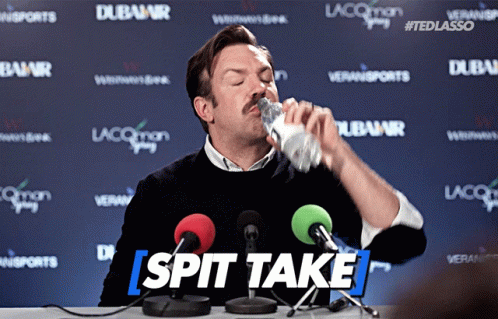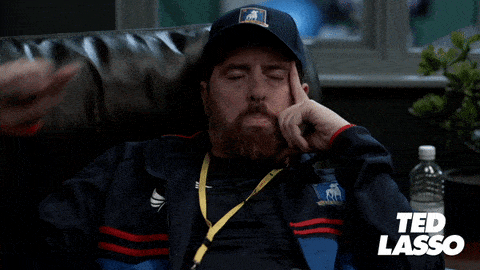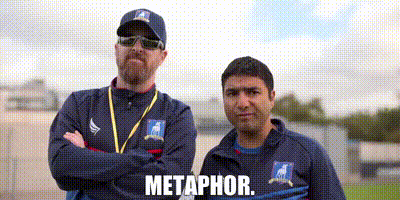We must never forget that art is not a form of propaganda; it is a form of truth.” - John F. Kennedy
Currently on the president’s Amazon wish list:
Greenland
Canada
The Panama Canal
Gaza
The Kennedy Center
I’m only qualified to talk about one of these, and as I write it’s getting even more real. So, distraction though it may (hopefully) be, let’s dive in.
Remember what I said about Aaron Copland?
The arts have never existed in a vacuum. In peace, war, calm, and revolution, it’s music, art, opera, literature, and theater that have done the work of holding a mirror to society for centuries. And they’re especially good at criticizing the authority figures around them. This terrifies weak leaders, so they have a tendency to exert control. For anyone with an ounce of historic knowledge of the fine arts, a takeover of the Kennedy Center is a shock to the system.
In short: the John F. Kennedy Center of the Performing Arts is a government trust, under a hybrid government/private partnership. The government maintains the facility, not the programming. The center was created by an act of Congress, which is shared on their website:
…present classical and contemporary music, opera, drama, dance, and other performing arts from the United States and other countries; promote and maintain the John F. Kennedy Center for the Performing Arts as the National Center for the Performing Arts; strive to ensure that the education and outreach programs and policies of the John F. Kennedy Center for the Performing Arts meet the highest level of excellence and reflect the cultural diversity of the United States…
And it’s done a pretty good job so far. From its launch with Leonard Bernstein’s Mass to performances by American greats like Marian Anderson and Fred Astaire, the center has done everything possible to be the “cultural Mecca” that Eisenhower proposed in the 1950s.
Currently they’re anticipating a series of events to celebrate our next mission to the moon with actors, singers, poets, and of course, astronauts.
But according to the president, now the whole place has to be made “great again.”
“Art is the great democrat, calling forth creative genius from every sector of society, disregarding race or religion or wealth or color.” - JFK
While throughout history the arts have never shied away from poking political leaders, political leaders have never been afraid to poke back. My thoughts this week have been a jumble of the many times worldwide a so-called “national theater” has been under attack. And while many of my friends are citing midcentury Germany, my mind has actually been on Russia. Specifically, the Bolshoi.
Moscow’s Bolshoi Theater began its life with ballet and opera. The eponymous dance company even premiered Tchaikovsky’s Swan Lake.
It all started in 1776, as Moscow was in a bit of a cultural turf war with St. Petersburg, so the city asserted itself via a new theatrical endeavor with new work premieres, and seats for the tsar. Despite burning down no less than three times, it continued even through the October Revolution, when residents couldn’t get food, but they could see a performance of Eugene Onegin or La Traviata. Lenin himself actually protected the Bolshoi from closure during that time, but upon doing so put himself in charge. And thus, the Bolshoi Theater was made a cultural weapon.
This was perhaps a bumpier road than the soviet government expected. Content was a constant headache as what could be depicted was constantly scrutinized. As this weekend’s Super Bowl halftime show ably demonstrated - symbolism comes in layers that can take us by surprise. So they didn’t always get it right. The topic of a performance might be the Russian army (yay!) but then the allegory might not be so friendly (uh oh!).
In 1936 the opera Lady Macbeth of Mtsensk had its premiere. Composer Dmitri Shostakovich set the novella of the same name as an opera that echoed many soviet themes. But Stalin simply couldn’t bear the clashing sound, and left the performance early. Shostakovich was promptly denounced in the newspaper Pravda, with Lady Macbeth as well as his ballet The Limpid Stream decried as “muddle instead of music.” The reviews hinted that if he didn’t change his modernist style “bad things might happen” to him. While initially he laughed, his status as “enemy of the people” made him fear for his safety.
The same nearly happened to Sergei Prokofiev when his ballet depiction of Romeo and Juliet had a preview at the Bolshoi, with its optimistically changed ending.
Both composers were internationally famous, and seem to have been unwilling participants in any kind of cultural conflict. Shostakovich in particular was hailed as a national hero after having his Seventh Symphony premiere within the siege of Leningrad. But both men were caught up in fraught situations at the national theater, that remained hanging over their heads, at least partially stifling them for years.
Even when the art inside the Bolshoi Theater conformed to soviet cultural views, things were not always smooth. You might be thinking, “it’s just ballet, what could the consequence be?” How about the outcome of the Cold War?
The ballet The Red Poppy was wildly popular from its premiere in the 1920s, given its Russian heroes and Western villains. But when it was presented to Mao (who only had an associate attend) in 1950, its out-of-touch exoticism did not go over well. Resentment from watching this performance was part of the Sino-Soviet split. It’s not an exaggeration to say that the misstep of The Red Poppy helped the USA win the Cold War.
The Bolshoi Theater wasn’t just the home of ballet. Once it was taken over by Lenin, it was used as a center of Russian culture. It’s where the formation of the USSR was announced in 1922. In 1946 it’s where Stalin announced his election (unopposed) as Supreme Soviet. This is the speech where he claimed that capitalism caused World War II, and in which he used a buzzer to tell the audience to stop applauding, since nobody would dare stop on their own. And it’s where in 2022 Vladimir Putin installed loyalist Valery Gergiev, one of the few conductors who will not denounce the invasion of Ukraine, as Artistic Director - an unprecedented position of power over the arts, given that he also leads St. Petersburg’s Mariinsky Theater. It’s worth noting that the previous Artistic Director Vladimir Urin was fired immediately upon his cosigning a letter opposing the invasion.
Since its formation, the Bolshoi has stood as an international symbol of being Russian. From its progress to its failings to its spotlight on propaganda, and now its accusations of corruption and violence.
Now, circling back to the Kennedy Center.
“I look forward to an America which will not be afraid of grace and beauty...an America which will reward achievement in the arts as we reward achievement in business or statecraft.” - JFK
The arts are our mirror. So when we have a national theater, it reflects us, for better or worse. Thankfully the Kennedy Center has given us a lot to be proud of. The best music we have - in a variety of genres, a world class orchestra and dance companies, educational and outreach programming, plus honoring our great artists, humorists, and even astronauts - that’s who we are.
But we have to see the entire picture. This conflict? A president who as I was writing this, fired the entire board of the Kennedy Center? That too is a reflection of us right now. Stunt or not, whether we accept it or reject it is existential to our identity as a democratic society.
“If art is to nourish the roots of our culture, society must set the artist free to follow his vision wherever it takes him.” - JFK
While the term “golden age” comes from Greek mythology (funny enough, ending with Prometheus’s gift of fire and the arts), the president’s claim that he is ushering in a “Golden Age of Arts and Culture” could not be better suited for a textbook entry on ultranationalism if he tried. He also refers to it as a national “JEWEL” (all caps his own) - a common description of the Bolshoi.
Who defines whether this is a golden age, and what that even means? We as individuals do, and we must continue to define it every day. Because like it or not, it will be how we will be remembered for decades to come. It will shape what is possible for the next generation - not just artistically, but culturally. And it’s culture that drives our potential. It’s our demonstration of the “why” behind everything we do.
When Pravda called Shostakovich’s music “degenerate,” nothing would have happened if people hadn’t believed it. We have more information at our fingertips than ever before, so I have a humble suggestion for you right now.
Go on the Kennedy Center website and look at what they do. Do you think it needs an overhaul? Do you think it’s dangerous? Do you think it’s being portrayed accurately by the president? Or do you think it’s being weaponized? Whether for power, money, or even just a misguided attempt at legacy… weaponized?
And the bigger and more important question:
Do you think it should be protected?
“This country cannot afford to be materially rich and spiritually poor.” - JFK
-Colleen
PS - For inspiration, here’s some music by the Kennedy Center’s composer in residence, Carlos Simon.













